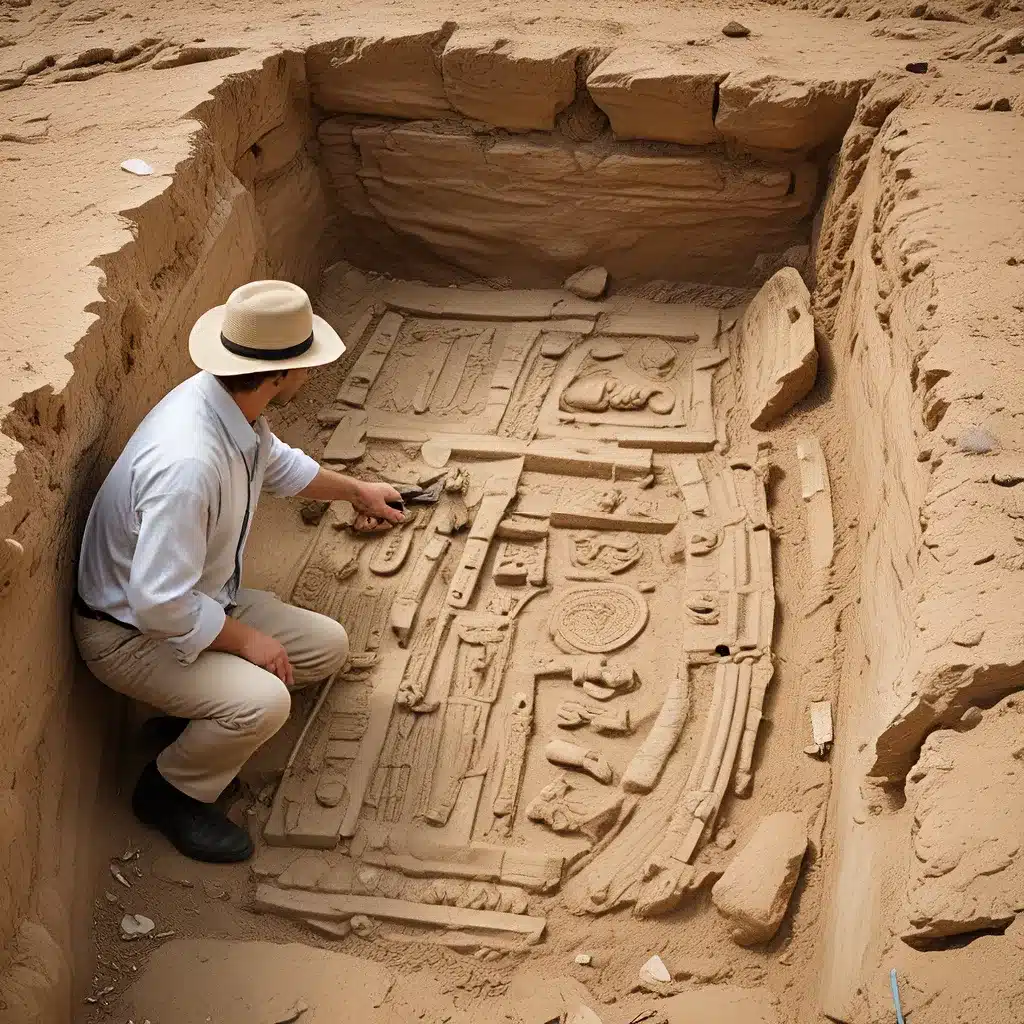
Uncovering the Hidden Truths of Ancient Civilizations
The study of ancient civilizations has long captivated the minds of scholars, historians, and the general public alike. For centuries, our understanding of the past has been shaped by the limited information available, often gleaned from fragmented texts, artifacts, and archaeological discoveries. However, in recent decades, a surge of groundbreaking archaeological findings has challenged the established narratives, forcing us to reconsider our conceptions of the ancient world.
One of the most significant areas of archaeological exploration has been the study of dinosaurs and their role in shaping the earth’s history. Long thought to be the domain of fantastical legends and mythological creatures, the discovery of well-preserved fossils and advanced dating techniques have revealed a far more complex and nuanced story of these prehistoric beasts. Researchers have uncovered evidence that challenges our long-held beliefs about the extinction of dinosaurs, shedding new light on the environmental and climatic factors that may have contributed to their downfall.
Deciphering the Mysteries of Ancient Cultures
Beyond the realm of dinosaurs, archaeological excavations have also unearthed remarkable insights into the lives and customs of long-forgotten civilizations. From the ancient Egyptian empire to the enigmatic Mayan culture, each new discovery has the potential to rewrite our understanding of these societies and their impact on the course of human history.
One particularly intriguing example is the ongoing exploration of the Seven Churches of Revelation, located in modern-day Turkey. These early Christian communities, once thriving centers of faith, have left behind a wealth of architectural and textual clues that have allowed scholars to piece together a more nuanced understanding of the challenges and persecutions faced by the early church. As one researcher noted, “The ruins of these ancient cities once teeming with people long gone” have become a tangible link to the past, challenging us to consider the enduring legacy of these early Christian communities.
Similarly, the ongoing excavations of the ancient city of Laodicea have shed new light on the commercial and cultural significance of this once-thriving hub. Situated along a major trade route, Laodicea was known for its wealth, eye medicines, and black wool production. The insights gleaned from these archaeological investigations have not only deepened our understanding of the ancient city but have also provided valuable context for interpreting the biblical accounts of the church in Laodicea.
Challenging Preconceived Notions of the Past
As these archaeological discoveries continue to unfold, they have forced us to challenge our preconceived notions about the past. The historical evidence surrounding the life and ministry of Jesus of Nazareth has long been a subject of intense debate, with some scholars questioning the very existence of the figure at the center of Christianity. However, a closer examination of the available literary sources and the criterion of authenticity employed by historians has revealed a more nuanced and compelling portrait of the historical Jesus.
Contrary to the claims of some skeptics, the absence of direct eyewitness accounts or physical artifacts does not necessarily negate the historical existence of Jesus. Instead, the careful analysis of the available evidence, including the corroborating accounts of ancient writers and the internal consistency of the biblical narratives, has led many scholars to conclude that Jesus was indeed a real historical figure whose teachings and purported miracles had a profound impact on the early development of Christianity.
As we continue to uncover the hidden treasures of the past, it is important to approach these discoveries with a spirit of open-mindedness and critical inquiry. By challenging our preconceptions and embracing the evolving understanding of ancient civilizations, we can gain a deeper appreciation for the complexities and interconnectedness of human history. This, in turn, can inform our perspectives on the present and shape our collective vision for the future.
The Ongoing Pursuit of Historical Truth
The pursuit of historical truth is an ever-evolving endeavor, as each new archaeological discovery has the potential to reshape our understanding of the past. From the Lost Kingdoms website to the work of dedicated researchers and scholars, the ongoing exploration of ancient civilizations has become a vital component of our collective knowledge and cultural heritage.
As we continue to delve deeper into the mysteries of the past, it is essential that we remain open to the possibility of challenging established beliefs and embracing new perspectives. By approaching the study of ancient history with a spirit of intellectual rigor and humility, we can uncover the hidden truths that have the power to transform our understanding of the world and our place within it.
The journey of archaeological discovery is far from over, and the treasure trove of information that lies buried beneath the surface of our planet promises to yield even more remarkable insights in the years to come. By embracing this pursuit of historical truth, we can unlock the secrets of the past and reshape the future, one archaeological revelation at a time.


